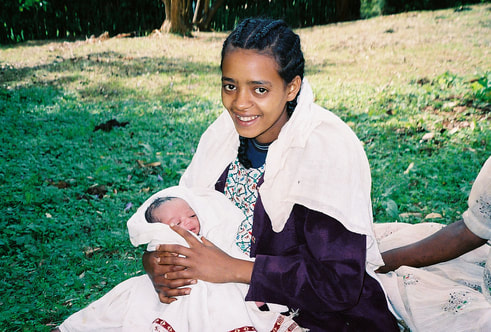Our Mission & Philosophy of Care

The Midwifery School has a mission to uphold excellence in midwifery education so those with a calling may learn to minister the highest standards of care in national and international locations. We offer students a program designed to prepare them with the essential skills and knowledge necessary to allow them to practice in the Birth Support system as a Doula, Antenatal & Childbirth Educator, a Midwife Assistant, and/or a credentialed Midwife. Our graduates will go on to provide quality care to pregnant and birthing women in many nations. The Midwifery School recognizes the necessity for students to be trained in a variety of educational environments and wishes to meet their needs in a private institution conceived and administered by midwives. The art and science of midwifery is best taught by those active in its practice or who support the profession that midwifery is a vocation to be honored in its own right and not the practice of medicine (though all students will learn the importance of collaborative care with physicians). We believe that our profession offers the most appropriate care for pregnant and birthing women.
The Midwifery School agrees with the International Definition of a Midwife (accepted by the International Confederation of Midwives in 1972, and by the International Federation of Gynecology and Obstetrics in 1973): "A midwife is a person who, having been regularly admitted to a midwifery educational program recognized in the country in which it is located, has successfully completed the prescribed course of studies in midwifery and has acquired the requisite qualifications to be registered and/or legally licensed to practice midwifery. She must be able to give the necessary supervision, care, and advice to women during pregnancy, labor, and the postpartum period; to conduct deliveries on her own responsibility; and to care for the newborn and infant. This care includes preventative measures, the detection of abnormal conditions in mother and child, the procurement of medical assistance, and the execution of emergency measures in the absence of medical help. She has an important task in health counseling and education, not only for patients but also within the family and the community. The work should involve antenatal education and preparation for parenthood and should extend to certain areas of gynecology, family planning and child care. She may practice in hospitals, clinics, health units, domiciliary conditions, or in any other service."
The Midwifery School has incorporated the core competencies of the North American Registry of Midwives, the Midwives Alliance of North America and the International Confederation of Midwives into its curriculum as well as meeting the Curriculum Framework developed by the state of Texas for approved midwifery education, and by the World Health Organization. Our core curriculum was first developed through the Institute for the Nations in Perth, Australia, and refined over the past 20 years of teaching YWAM missionaries who travel to various nations while attending the Birth Attendant School.
We believe that this curriculum will provide our students with the knowledge, competencies and attitudes required to successfully practice in the midwifery field of many nations to use our skills as instruments of righteousness, giving opportunity to share the message and truth of Jesus Christ in families, villages and nations.
The Midwifery School agrees with the International Definition of a Midwife (accepted by the International Confederation of Midwives in 1972, and by the International Federation of Gynecology and Obstetrics in 1973): "A midwife is a person who, having been regularly admitted to a midwifery educational program recognized in the country in which it is located, has successfully completed the prescribed course of studies in midwifery and has acquired the requisite qualifications to be registered and/or legally licensed to practice midwifery. She must be able to give the necessary supervision, care, and advice to women during pregnancy, labor, and the postpartum period; to conduct deliveries on her own responsibility; and to care for the newborn and infant. This care includes preventative measures, the detection of abnormal conditions in mother and child, the procurement of medical assistance, and the execution of emergency measures in the absence of medical help. She has an important task in health counseling and education, not only for patients but also within the family and the community. The work should involve antenatal education and preparation for parenthood and should extend to certain areas of gynecology, family planning and child care. She may practice in hospitals, clinics, health units, domiciliary conditions, or in any other service."
The Midwifery School has incorporated the core competencies of the North American Registry of Midwives, the Midwives Alliance of North America and the International Confederation of Midwives into its curriculum as well as meeting the Curriculum Framework developed by the state of Texas for approved midwifery education, and by the World Health Organization. Our core curriculum was first developed through the Institute for the Nations in Perth, Australia, and refined over the past 20 years of teaching YWAM missionaries who travel to various nations while attending the Birth Attendant School.
We believe that this curriculum will provide our students with the knowledge, competencies and attitudes required to successfully practice in the midwifery field of many nations to use our skills as instruments of righteousness, giving opportunity to share the message and truth of Jesus Christ in families, villages and nations.
